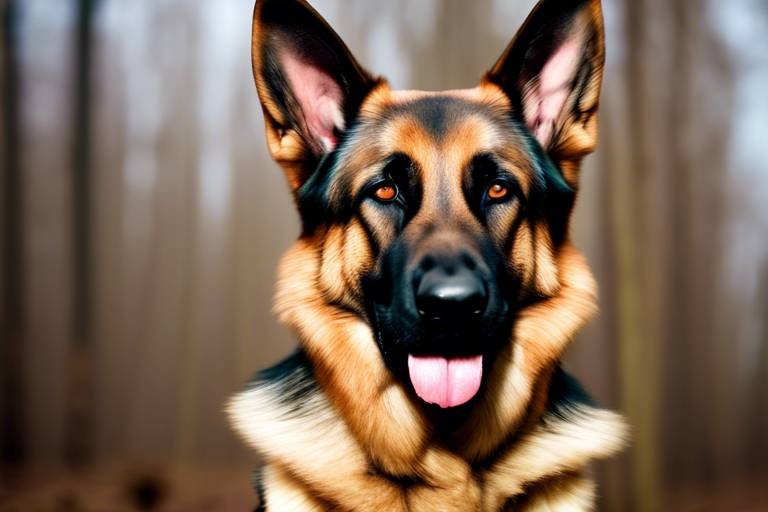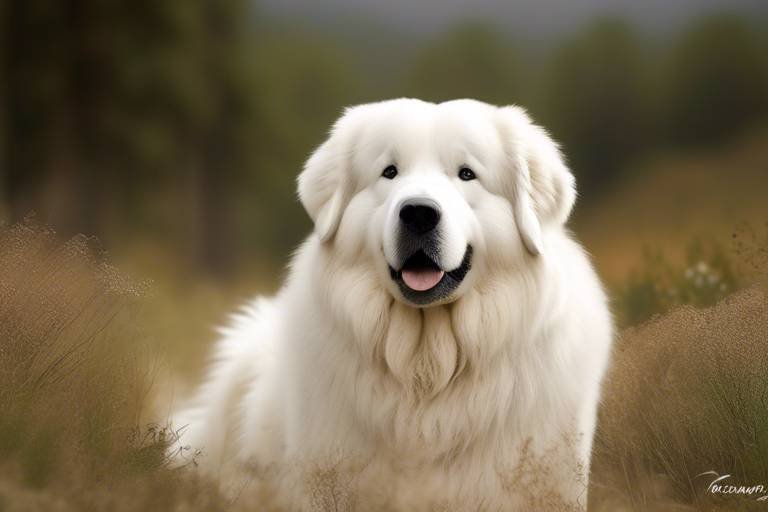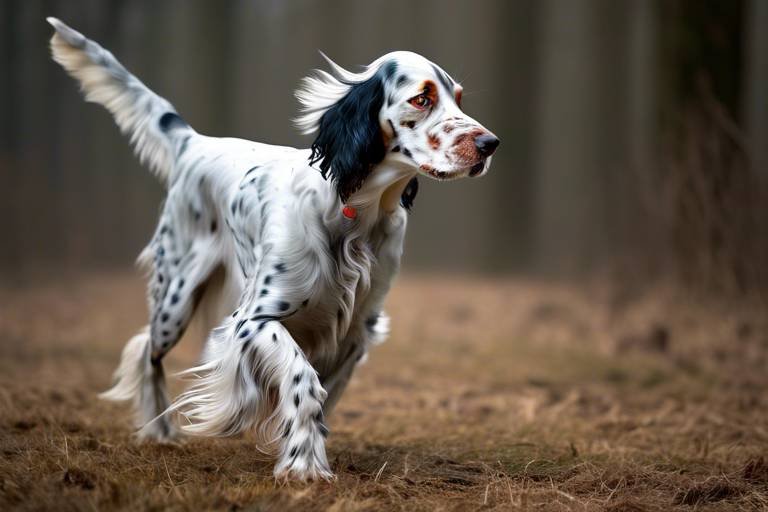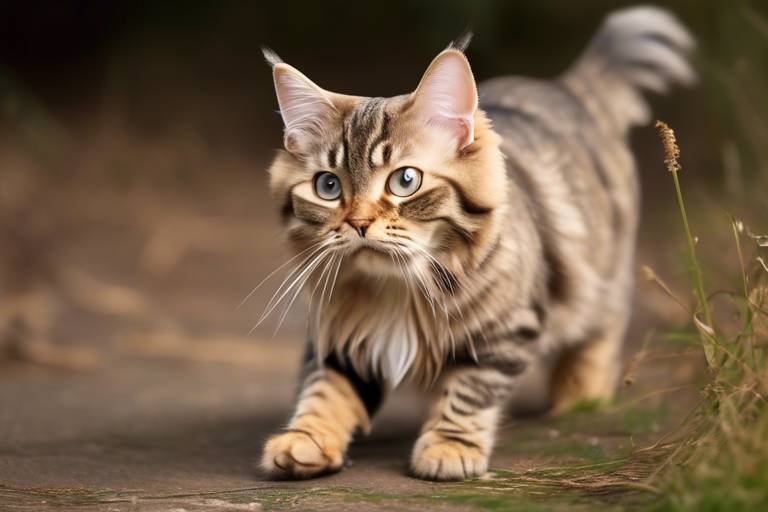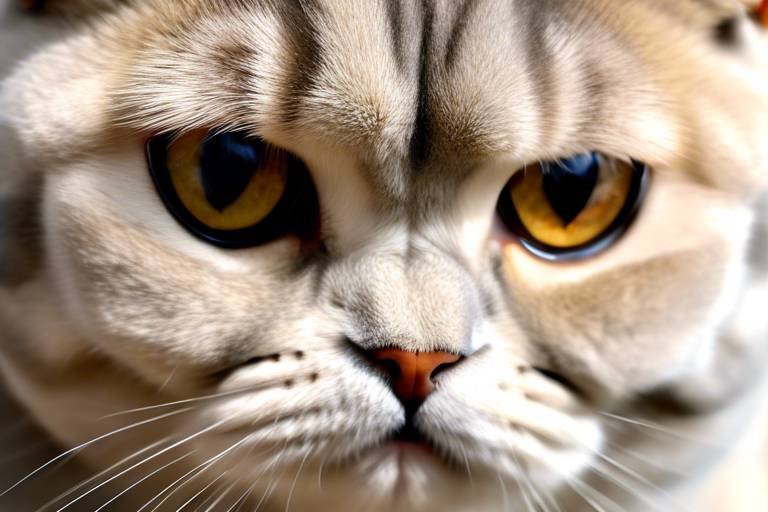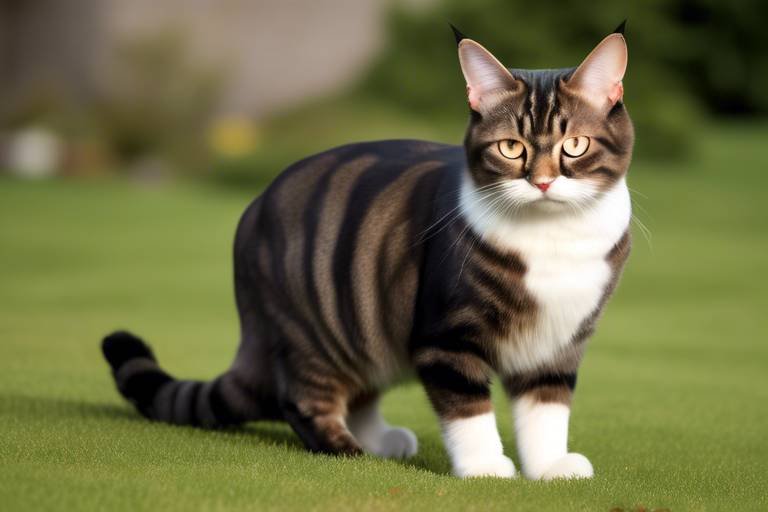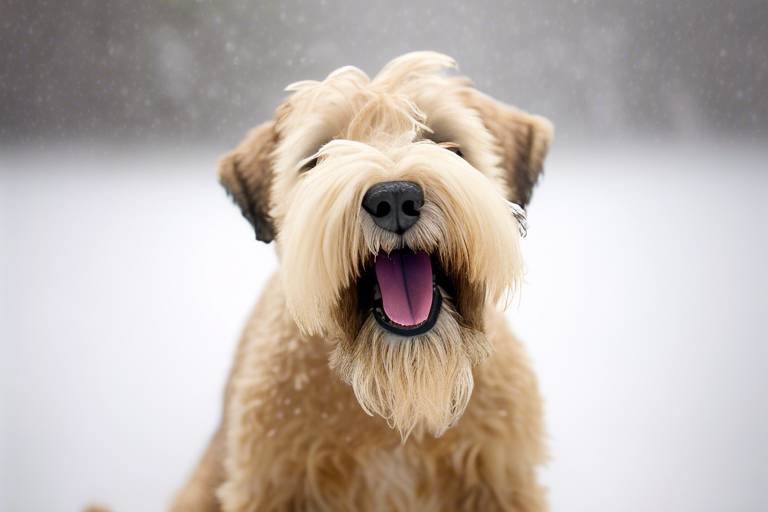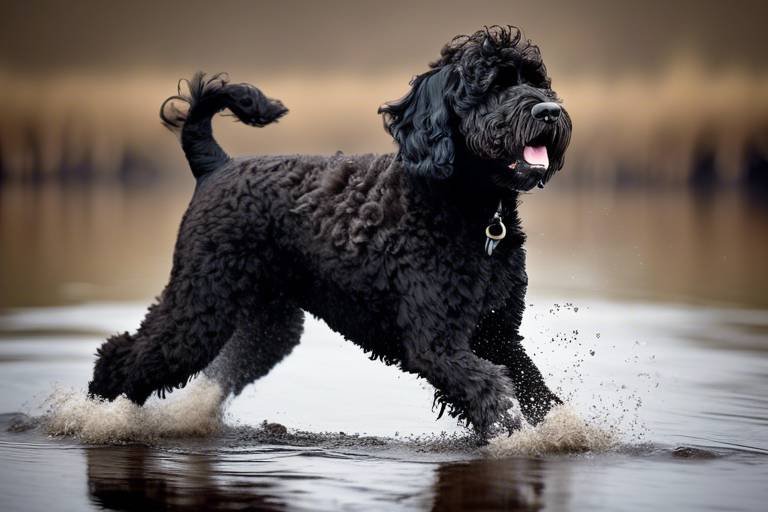The Characteristics of the Manchester Terrier
The Manchester Terrier is a breed that captures the hearts of dog lovers with its unique combination of elegance and playfulness. Known for their sleek physique and charismatic personality, these dogs are not just pets; they are companions that bring joy and energy to any household. With a rich history as a ratting dog, the Manchester Terrier has evolved into a beloved family member, known for its loyalty and intelligence. This article delves into the distinctive traits of the Manchester Terrier, including its physical appearance, temperament, exercise needs, grooming requirements, and health considerations, providing a comprehensive overview for potential owners and enthusiasts.
The Manchester Terrier boasts a sleek, athletic build that makes it stand out among dog breeds. Their short coat, which comes in a striking combination of black and tan, highlights their elegant lines and well-defined muscles. The breed typically weighs between 12 to 22 pounds and stands about 15 to 16 inches tall at the shoulder. One of the most captivating features of the Manchester Terrier is its expressive eyes, which convey a sense of alertness and intelligence. The breed's ears are typically cropped, giving them a distinctive look that adds to their charm. Overall, the Manchester Terrier's physical attributes not only enhance its beauty but also reflect its agility and energy.
Manchester Terriers are known for their lively and intelligent nature, making them affectionate companions that thrive on interaction with their human family. They have a playful demeanor that can bring laughter and joy to any household. Their loyalty is unmatched, often forming strong bonds with their owners. This breed is also naturally alert, making them effective watchdogs. They possess a keen sense of their surroundings and will not hesitate to alert their family of any unusual activity. However, their spirited nature means they require proper socialization and training to develop into well-rounded pets.
Proper socialization is crucial for Manchester Terriers to develop well-rounded personalities. Early exposure to various environments, people, and other animals helps prevent behavioral issues and fosters confidence in these spirited dogs. It's important to introduce them to different situations to ensure they grow up to be balanced and sociable. This can include visits to parks, meeting other dogs, and interacting with children. By doing this, you're not just raising a pet; you're nurturing a confident companion.
Manchester Terriers can be great with children, enjoying their playful energy. They often engage in games of fetch and chase, making them fun playmates. However, supervision is essential to ensure safe interactions and prevent any accidental rough play, especially with younger kids. Teaching children how to interact with the dog gently can foster a positive relationship, ensuring that both the child and the dog enjoy their time together.
While generally friendly, Manchester Terriers may display a prey drive due to their terrier background. This means they might be inclined to chase smaller animals. Careful introductions and monitoring are necessary when integrating them into homes with smaller pets. A gradual introduction process can help them adjust and learn to coexist peacefully with other animals in the household.
Training a Manchester Terrier can be both rewarding and challenging. Their intelligence requires consistent, positive reinforcement methods to keep them engaged and responsive. Using treats and praise during training sessions can motivate them to learn commands and tricks. It's essential to start training early and maintain a routine to ensure they become well-behaved companions. Remember, patience is key, as these dogs thrive on mental stimulation and can easily become bored if training is not varied and engaging.
These energetic dogs thrive on regular physical activity. Daily walks, playtime, and mental stimulation are essential to keep them healthy and prevent boredom-related behaviors. It's crucial for owners to prioritize exercise, as a well-exercised Manchester Terrier is a happy and well-adjusted dog. Without adequate physical activity, they can become restless, leading to destructive behaviors. A good rule of thumb is to aim for at least 30 to 60 minutes of exercise each day, which can include walks, play sessions, or even agility training.
Engaging Manchester Terriers in various activities, such as agility training or fetch, can help satisfy their energy levels. These activities not only provide the necessary physical exercise but also strengthen the bond between the dog and its owner, enhancing overall happiness. For instance, setting up a small obstacle course in the backyard can be a fun way to challenge their agility and intelligence. Additionally, regular playdates with other dogs can provide social interaction and exercise simultaneously.
When not adequately exercised, Manchester Terriers may exhibit destructive behaviors or excessive barking. Recognizing these signs early allows owners to adjust their routines and meet their dog's needs effectively. Common signs include chewing furniture, digging, or restlessness. If you notice your dog engaging in these behaviors, it may be time to increase their exercise regimen or introduce new activities to keep them engaged.
Manchester Terriers have minimal grooming requirements, thanks to their short coat. Regular brushing and occasional baths help maintain their appearance. A simple grooming routine can include brushing once a week to remove loose hair and dirt, which also promotes skin health. Additionally, routine dental care and nail trimming are crucial for their overall health. Keeping their nails trimmed not only prevents discomfort but also protects your floors and furniture.
Using a soft-bristle brush can effectively remove loose hair and dirt from a Manchester Terrier's coat. Regular brushing not only keeps them looking their best but also promotes skin health and bonding time between you and your dog. It's a great opportunity to check for any skin issues or irritations while you groom them, ensuring they remain comfortable and healthy.
Bathing should be done as needed, typically every few months or when they become particularly dirty. Overbathing can strip natural oils, so it's essential to find a balance that keeps their coat healthy. Using a dog-specific shampoo can help maintain the coat's shine and health, ensuring your Manchester Terrier looks and feels great.
Like all breeds, Manchester Terriers may be prone to specific health issues. Regular veterinary check-ups and awareness of potential conditions can help ensure a long, healthy life for these energetic dogs. It's important for owners to be proactive about their dog's health to catch any issues early.
Some health concerns for Manchester Terriers include hip dysplasia and patellar luxation. Understanding these issues can help owners take preventive measures and monitor their dog's health effectively. Regular exercise and maintaining a healthy weight can significantly reduce the risk of these conditions.
Routine veterinary visits, vaccinations, and a balanced diet play crucial roles in maintaining a Manchester Terrier's health. Preventive care helps catch potential issues early, promoting a longer, happier life for the dog. Additionally, providing a nutritious diet tailored to their age and activity level can enhance their overall well-being.
- What is the average lifespan of a Manchester Terrier? The average lifespan is around 14 to 16 years.
- Are Manchester Terriers good for first-time dog owners? Yes, with proper training and socialization, they can be great companions for first-time owners.
- How much exercise do Manchester Terriers need? They require at least 30 to 60 minutes of exercise daily.
- Do they shed a lot? They have a short coat and shed minimally, making them relatively low-maintenance in terms of grooming.
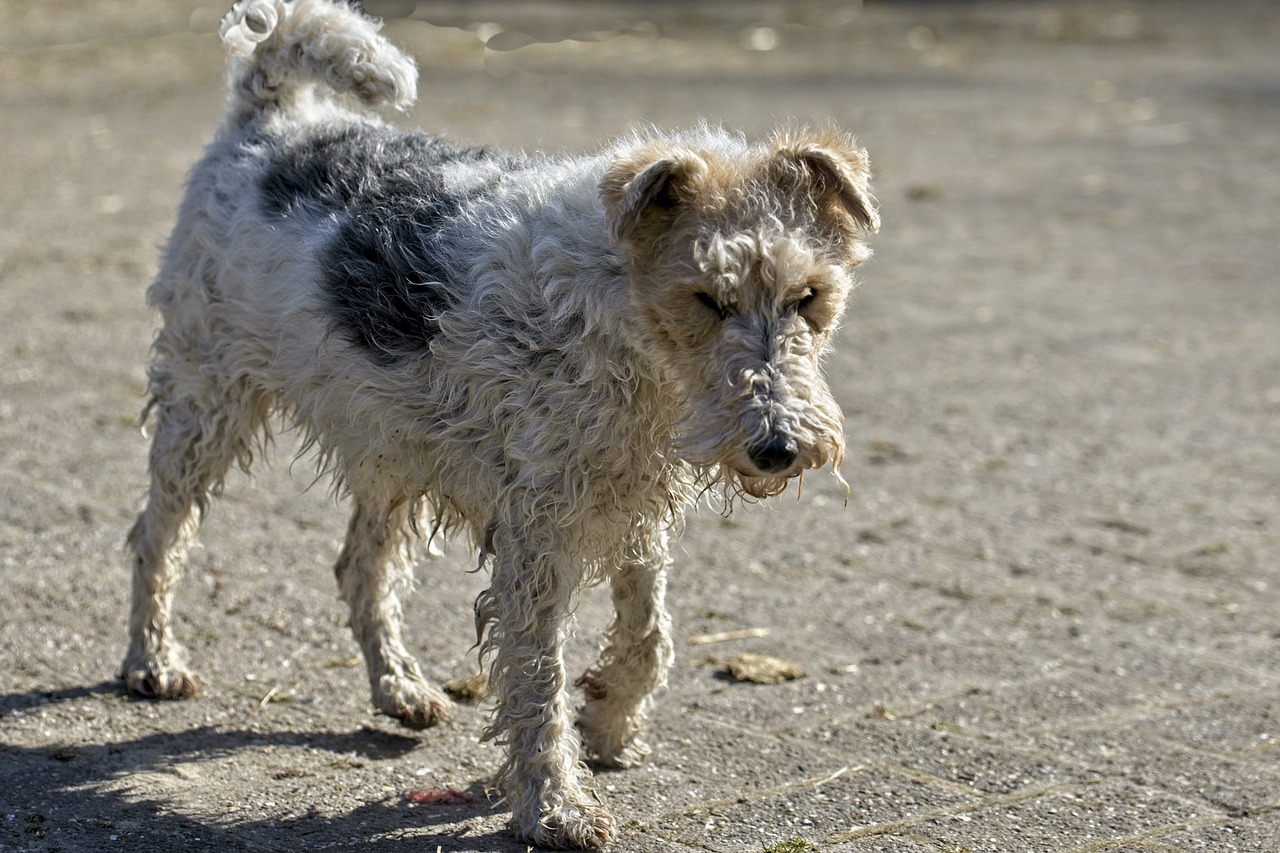
Physical Appearance
The Manchester Terrier boasts a sleek, athletic build that captures attention wherever it goes. With a well-defined musculature and elegant lines, this breed is not only striking but also exudes a sense of grace and agility. Their short, smooth coat is typically black and tan, giving them a distinctive and polished look. The coat lies close to the body, which emphasizes their lean physique. One cannot help but notice their expressive, bright eyes that radiate intelligence and curiosity, making them easily recognizable among dog breeds.
The Manchester Terrier comes in two distinct sizes: the Standard and the Toy. The Standard typically stands between 15 to 16 inches tall at the shoulder, while the Toy variety is smaller, standing at about 10 to 12 inches. This size variation allows for a range of owners to find a Manchester that fits their lifestyle, whether they prefer a compact companion or a slightly larger dog. Below is a quick comparison of the two sizes:
| Size | Height | Weight |
|---|---|---|
| Standard | 15-16 inches | 12-22 pounds |
| Toy | 10-12 inches | 5-12 pounds |
In addition to their size, Manchester Terriers are known for their distinctive ears. They have naturally erect ears that stand tall, adding to their alert appearance. These ears are often described as “bat-like,” which contributes to their overall charm. Their tails are typically docked, giving them a clean-cut look that matches their refined stature. When they move, they do so with a lively, bounding gait that showcases their energy and enthusiasm for life.
Overall, the Manchester Terrier's physical traits are a blend of elegance and strength, making them not only beautiful companions but also agile and capable athletes. Whether you're looking for a dog to accompany you on outdoor adventures or a charming companion to curl up with at home, the Manchester Terrier's striking appearance is sure to turn heads and win hearts.
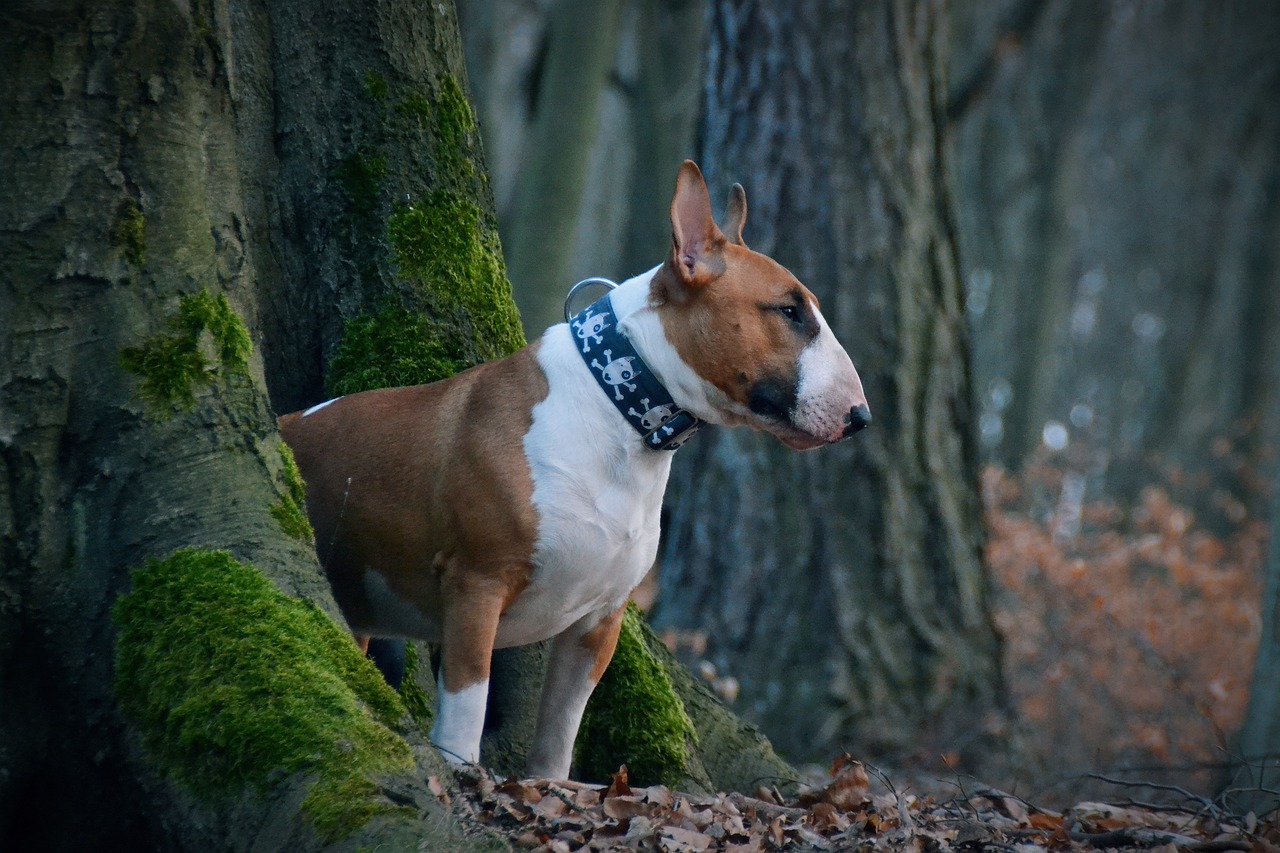
Temperament
The Manchester Terrier is a breed that embodies a delightful mix of energy, intelligence, and affection. Known for their lively disposition, these dogs are not just pets; they are true companions who thrive on interaction and engagement. Their playful nature makes them a joy to have around, and their loyalty is unwavering. Imagine coming home after a long day to a wagging tail and a happy face; that's the Manchester Terrier experience!
These dogs are incredibly affectionate and love to be part of family activities. Whether it's a game of fetch in the backyard or snuggling on the couch, they relish every moment spent with their human companions. Their alertness also makes them excellent watchdogs, as they are quick to notice any unusual activity around the home. This combination of traits makes them not only fun to be with but also a reliable presence in your life.
However, it's important to note that proper socialization is crucial for Manchester Terriers. Early exposure to different environments, people, and other animals is essential for them to develop well-rounded personalities. Without this exposure, they may become overly cautious or even aggressive towards unfamiliar situations. Think of it like teaching a child to navigate the world; the more experiences they have, the more confident and adaptable they become.
When it comes to children, Manchester Terriers can be wonderful playmates. They enjoy the energy that kids bring and often engage in playful antics that entertain everyone involved. However, supervision is key. Just like a lively game of tag can sometimes lead to unintended bumps and bruises, young children and excited dogs need guidance to ensure safe interactions. Teaching children how to respect a dog's space and reading their body language can foster a harmonious relationship.
As for other pets, Manchester Terriers generally have a friendly disposition. Yet, due to their terrier heritage, they might exhibit a bit of a prey drive, especially towards smaller animals. Imagine a small squirrel dashing across your yard; a Manchester Terrier might just see it as an invitation to chase! Therefore, careful introductions and constant monitoring are essential when bringing them into homes with smaller pets. A gradual acclimatization process can help ensure everyone gets along.
Training a Manchester Terrier can be a rewarding yet challenging endeavor. Their sharp minds require consistent and positive reinforcement methods to keep them engaged. Think of training as a dance; both partners need to be in sync to create a beautiful performance. When you use positive methods, you not only teach them commands but also build a trusting relationship. Remember, a well-trained Manchester Terrier is not just obedient; they are a happy and confident companion.
In summary, the temperament of the Manchester Terrier is a delightful blend of energy, affection, and intelligence. Their playful nature and loyalty make them excellent family pets, but it’s essential to provide them with the right socialization, training, and supervision to ensure they thrive in a loving home.
- Are Manchester Terriers good with children? Yes, they can be great with children, but supervision is important to ensure safe interactions.
- How much exercise do Manchester Terriers need? They require regular physical activity, including daily walks and playtime to keep them healthy and happy.
- Do Manchester Terriers get along with other pets? They can be friendly, but careful introductions are necessary, especially with smaller animals due to their prey drive.
- How should I train my Manchester Terrier? Use consistent, positive reinforcement methods to keep them engaged and responsive during training sessions.
Socialization Needs
Socialization is not just a buzzword in the dog training world; it's a fundamental aspect of raising a well-adjusted Manchester Terrier. These spirited dogs thrive on interaction, and early exposure to a variety of environments, people, and other animals is crucial for their development. Imagine a young puppy exploring a bustling park for the first time, meeting children, adults, and other dogs—this experience shapes their personality and helps them become confident, well-rounded adults.
Without proper socialization, Manchester Terriers can develop behavioral issues that may lead to anxiety or aggression. It's essential to introduce them to different sights, sounds, and experiences during their formative months. For instance, taking them on car rides, visiting pet-friendly stores, or attending puppy classes can significantly enhance their social skills. The goal is to create positive associations with new experiences, which will serve them well throughout their lives.
Here are some key aspects to consider when socializing your Manchester Terrier:
- Start Early: The critical window for socialization is between 3 and 14 weeks of age. This is when they are most receptive to new experiences.
- Variety is Key: Expose them to different environments—parks, busy streets, and quiet neighborhoods—to help them adapt to various situations.
- Positive Reinforcement: Use treats and praise to reward your dog during socialization sessions. This helps them associate new experiences with positive outcomes.
Involving family members, especially children, in the socialization process can also be beneficial. It teaches the dog to interact gently and respectfully with kids, fostering a strong bond and ensuring a harmonious household. However, supervision is crucial to prevent any accidental rough play, especially with younger kids who may not yet understand how to interact appropriately with pets.
Remember, socialization is an ongoing process. Even as your Manchester Terrier matures, continuing to expose them to new experiences will help maintain their confidence and adaptability. Whether it's a new dog park or a different walking route, keeping things fresh and exciting will contribute to their overall happiness and well-being.
1. What is the best age to start socializing my Manchester Terrier?
It's best to start socialization between 3 and 14 weeks of age, as this is the most critical period for developing a well-rounded personality.
2. How can I tell if my Manchester Terrier is well-socialized?
A well-socialized Manchester Terrier will be confident in new situations, friendly towards strangers and other dogs, and generally calm in various environments.
3. What should I do if my Manchester Terrier shows signs of fear or aggression during socialization?
If your dog displays fear or aggression, it's essential to take a step back and reintroduce them to the situation gradually. Consider consulting a professional trainer for guidance.
4. Can I socialize my adult Manchester Terrier?
Yes, while it's easier to socialize puppies, adult dogs can still learn new behaviors. Be patient and use positive reinforcement to help them adjust to new experiences.
Interactions with Children
Manchester Terriers can be fantastic companions for families with children. Their playful nature and boundless energy make them a perfect match for kids who love to run and play. Imagine a little one running around the backyard, giggling, while a Manchester Terrier joyfully chases after them, tail wagging and tongue lolling. It's a match made in heaven! However, it’s essential to remember that, like all dogs, Manchester Terriers require supervision during interactions with younger children. This ensures that playtime remains fun and safe for everyone involved.
While these dogs are generally affectionate and enjoy the company of children, their spirited personality can sometimes lead to accidental rough play. Therefore, teaching children how to interact with dogs is crucial. Here are some key points to consider:
- Teach Respect: Children should learn to respect the dog's space and understand when the dog wants to play or when it needs a break.
- Supervise Play: Always supervise playtime to prevent any unintended roughness or mishaps.
- Gentle Handling: Encourage children to handle the dog gently and to avoid pulling on ears or tails.
Manchester Terriers thrive on social interaction, so engaging them in family activities is a great way to strengthen the bond between the dog and the kids. Whether it’s playing fetch in the park or going for a family walk, these moments create lasting memories and help teach children responsibility. With proper supervision and guidance, Manchester Terriers can become beloved family members, providing companionship and joy for years to come.
- Are Manchester Terriers good with young children? Yes, they can be great companions for children, but supervision is essential to ensure safe interactions.
- Do Manchester Terriers have a high energy level? Absolutely! They are energetic dogs that require regular exercise and playtime.
- How do I introduce my Manchester Terrier to my children? Start with calm introductions, allowing the dog to approach the children at its own pace, and always supervise initial interactions.
- Can Manchester Terriers get along with other pets? They can, but careful introductions are necessary, especially with smaller animals due to their prey drive.
Compatibility with Other Pets
When it comes to , Manchester Terriers can be a delightful addition to a multi-pet household, but there are a few things to consider. These spirited little dogs have a background as terriers, which means they may possess a natural prey drive. This instinct can sometimes lead them to see smaller animals, like cats or rabbits, as potential playthings rather than companions. Therefore, careful introductions are essential to ensure a harmonious living environment.
To help facilitate positive interactions, it's best to introduce your Manchester Terrier to other pets in a controlled setting. Start with short, supervised meetings where both parties can get accustomed to each other's presence. Gradually increase the duration of these interactions as they become more comfortable. Here are some tips to keep in mind:
- Monitor Body Language: Pay attention to both your Manchester Terrier and the other pets. Signs of stress or aggression, such as growling, raised hackles, or excessive barking, should be addressed immediately.
- Positive Reinforcement: Reward your Manchester Terrier for calm behavior around other pets. Treats and praise can help reinforce good manners and create positive associations.
- Safe Spaces: Ensure that each pet has a personal space to retreat to if they feel overwhelmed. This can help reduce anxiety and prevent conflicts.
While Manchester Terriers can coexist peacefully with other pets, their compatibility largely depends on their individual personalities and the proper socialization they receive. Early exposure to various animals can help them develop a more tolerant and friendly demeanor. If you already have pets at home, consider their temperament and how they might react to a new dog. Some pets are more accepting than others, and it’s crucial to find the right match.
In summary, with the right approach, Manchester Terriers can thrive in a home with other pets. Just remember to take your time with introductions, provide plenty of positive reinforcement, and watch for signs of stress. A little patience can go a long way in creating a peaceful and loving household for all your furry friends.
- Are Manchester Terriers good with cats? - While they can be friendly with cats, it often depends on their individual temperament and early socialization.
- How should I introduce my Manchester Terrier to other pets? - Start with supervised meetings in a neutral space, rewarding calm behavior and gradually increasing interaction time.
- What if my Manchester Terrier shows aggression towards other pets? - Consult a professional trainer or behaviorist to help address and modify aggressive behaviors.
Training and Obedience
Training a Manchester Terrier can be both rewarding and challenging, primarily due to their high intelligence and spirited nature. These dogs are naturally curious, which makes them eager learners, but it also means they can quickly become bored if the training methods are not engaging. To successfully train a Manchester Terrier, it’s essential to utilize consistent and positive reinforcement techniques. This approach not only keeps them motivated but also fosters a strong bond between the dog and its owner.
One effective strategy is to incorporate play into training sessions. For example, using toys as rewards can make learning feel like a game rather than a chore. Additionally, short training sessions—about 5 to 10 minutes—are ideal, as they help maintain the dog's focus and enthusiasm. Here are some tips to enhance your training experience:
- Start Early: Begin training as soon as you bring your Manchester Terrier home. Early training sets the foundation for good behavior.
- Socialization: Expose your dog to various environments, people, and other animals to help them develop confidence and adaptability.
- Consistency is Key: Use the same commands and rewards consistently to avoid confusing your dog.
- Be Patient: Every dog learns at their own pace, so patience is crucial during the training process.
Additionally, incorporating basic commands such as "sit," "stay," and "come" into your routine can significantly improve your dog's obedience. These commands not only make daily interactions smoother but also enhance safety, especially when out in public. As the Manchester Terrier is known for its alertness, they can also be trained to respond to specific situations, making them effective watchdogs.
While training can sometimes be a test of patience, the rewards are well worth the effort. A well-trained Manchester Terrier is not just a joy to have around; they can also be a source of pride for their owners. Remember, the goal is to create a happy, obedient companion that fits seamlessly into your lifestyle.
Here are some common questions that potential Manchester Terrier owners might have:
- How long does it take to train a Manchester Terrier? Training duration varies, but with consistent effort, you can see significant progress within a few weeks.
- Are Manchester Terriers easy to train? They are intelligent and eager to please, making them relatively easy to train with the right methods.
- What training methods work best for Manchester Terriers? Positive reinforcement, including treats and praise, is the most effective method.
- How can I socialize my Manchester Terrier? Regularly expose them to different environments, people, and pets to help them become well-adjusted.
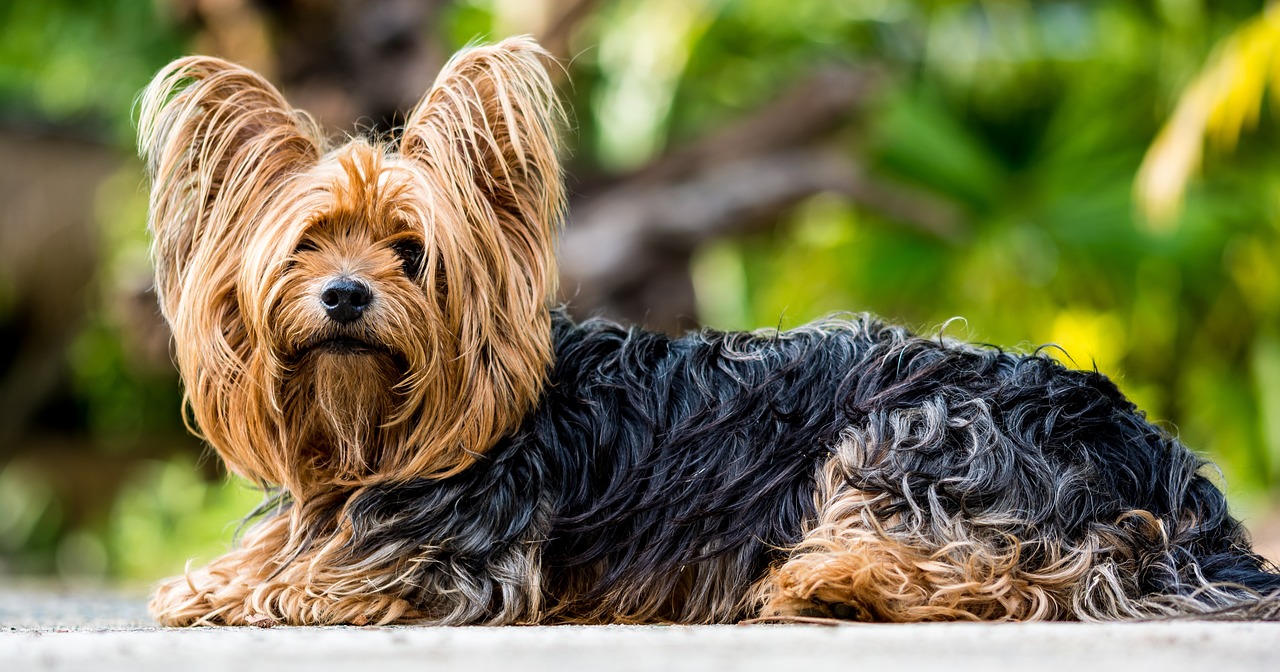
Exercise Requirements
The Manchester Terrier is a bundle of energy, and these lively dogs thrive on regular physical activity to keep them happy and healthy. Just like a well-oiled machine, they need movement to function optimally. Daily exercise is not just a luxury for these dogs; it’s a necessity. Whether it’s a brisk walk, a game of fetch, or an engaging session of agility training, keeping your Manchester Terrier active is key to preventing boredom and ensuring they remain well-behaved companions.
These dogs are naturally curious and intelligent, which means they require not only physical exercise but also mental stimulation. Think of it this way: a tired dog is a happy dog! Incorporating various activities into their routine can make a world of difference. Here are some recommended activities that can help meet their exercise needs:
- Daily Walks: Aim for at least 30 to 60 minutes of walking each day. This not only provides physical exercise but also allows your dog to explore new scents and sights.
- Playtime: Engaging in interactive games like fetch or tug-of-war can help burn off excess energy while strengthening your bond.
- Agility Training: This is a fantastic way to challenge both their body and mind. Setting up a simple obstacle course can be a fun way to exercise.
- Dog Sports: Consider enrolling your Manchester Terrier in dog sports or classes that focus on obedience, agility, or even flyball.
It’s essential to pay attention to your dog’s behavior during and after exercise. Signs of insufficient exercise can manifest in various ways. For instance, if your Manchester Terrier starts chewing on furniture, barking excessively, or digging, these could be indications that they need more physical activity. By recognizing these signs early, you can adjust your routines accordingly and ensure your furry friend remains content.
In summary, meeting the exercise requirements of a Manchester Terrier is crucial for their overall well-being. By incorporating a mix of physical activities and mental challenges into their daily routine, you not only keep them fit but also enrich their lives. Remember, a well-exercised Manchester Terrier is a happy and well-behaved companion!
Q: How much exercise does a Manchester Terrier need daily?
A: Manchester Terriers typically require at least 30 to 60 minutes of exercise each day to stay healthy and happy.
Q: Can Manchester Terriers live in apartments?
A: Yes, they can adapt to apartment living as long as they receive sufficient exercise and mental stimulation.
Q: What are some signs that my Manchester Terrier needs more exercise?
A: Look for signs like excessive barking, chewing on furniture, or restlessness. These behaviors often indicate boredom or pent-up energy.
Q: Are there specific activities that Manchester Terriers enjoy?
A: They love activities like fetch, agility training, and interactive playtime. Engaging their minds and bodies is key!
Recommended Activities
This article explores the unique traits of the Manchester Terrier, including its physical appearance, temperament, exercise needs, and grooming requirements, providing a comprehensive overview for potential owners and enthusiasts.
The Manchester Terrier boasts a sleek, athletic build with distinct features. Their short coat, elegant lines, and expressive eyes contribute to their striking appearance, making them easily recognizable among dog breeds.
Known for their lively and intelligent nature, Manchester Terriers are affectionate companions. Their playful demeanor and loyalty make them excellent family pets, while their alertness also makes them effective watchdogs.
Proper socialization is crucial for Manchester Terriers to develop well-rounded personalities. Early exposure to various environments, people, and other animals helps prevent behavioral issues and fosters confidence in these spirited dogs.
Manchester Terriers can be great with children, enjoying their playful energy. However, supervision is essential to ensure safe interactions and prevent any accidental rough play, especially with younger kids.
While generally friendly, Manchester Terriers may display a prey drive due to their terrier background. Careful introductions and monitoring are necessary when integrating them into homes with smaller pets.
Training a Manchester Terrier can be both rewarding and challenging. Their intelligence requires consistent, positive reinforcement methods to keep them engaged and responsive, ensuring they become well-behaved companions.
These energetic dogs thrive on regular physical activity. Daily walks, playtime, and mental stimulation are essential to keep them healthy and prevent boredom-related behaviors, making exercise a priority for owners.
Engaging Manchester Terriers in various activities is not just about burning off energy; it's about enhancing their overall well-being and strengthening the bond between dog and owner. These dogs are naturally curious and energetic, so activities that challenge both their minds and bodies are particularly beneficial. For example, agility training is a fantastic way for these dogs to channel their energy. It involves navigating through an obstacle course, which not only keeps them physically fit but also mentally stimulated as they learn to follow commands and navigate various challenges.
Another great activity is playing fetch. This classic game can be adapted to suit your dog's energy levels and preferences. Whether it's a simple game in the backyard or a more structured session at a local park, fetch is a wonderful way to engage your Manchester Terrier's natural instincts while providing them with the exercise they crave. Additionally, consider incorporating some interactive toys that require problem-solving, which can keep your dog entertained for hours.
Lastly, socializing your Manchester Terrier with other dogs can also be a rewarding experience. Dog parks or playdates with other friendly dogs allow them to engage in playful interactions, which is crucial for their social development. Just remember to supervise these interactions to ensure they remain safe and enjoyable.
When not adequately exercised, Manchester Terriers may exhibit destructive behaviors or excessive barking. Recognizing these signs early allows owners to adjust their routines and meet their dog's needs effectively.
Manchester Terriers have minimal grooming requirements, thanks to their short coat. Regular brushing and occasional baths help maintain their appearance, while routine dental care and nail trimming are also important for overall health.
Using a soft-bristle brush can effectively remove loose hair and dirt from a Manchester Terrier's coat. Regular brushing not only keeps them looking their best but also promotes skin health and bonding time.
Bathing should be done as needed, typically every few months or when they become particularly dirty. Overbathing can strip natural oils, so it's essential to find a balance that keeps their coat healthy.
Like all breeds, Manchester Terriers may be prone to specific health issues. Regular veterinary check-ups and awareness of potential conditions can help ensure a long, healthy life for these energetic dogs.
Some health concerns for Manchester Terriers include hip dysplasia and patellar luxation. Understanding these issues can help owners take preventive measures and monitor their dog's health effectively.
Routine veterinary visits, vaccinations, and a balanced diet play crucial roles in maintaining a Manchester Terrier's health. Preventive care helps catch potential issues early, promoting a longer, happier life for the dog.
- What is the average lifespan of a Manchester Terrier?
- The average lifespan is around 14-16 years, depending on their health and care.
- Are Manchester Terriers good for first-time dog owners?
- Yes, with proper training and socialization, they can be great companions for first-time owners.
- Do Manchester Terriers shed a lot?
- They have a short coat and are considered low-shedding, but regular brushing helps manage loose hair.
- How much exercise do they need daily?
- Manchester Terriers typically require at least 30-60 minutes of exercise each day.
Signs of Insufficient Exercise
This article explores the unique traits of the Manchester Terrier, including its physical appearance, temperament, exercise needs, and grooming requirements, providing a comprehensive overview for potential owners and enthusiasts.
The Manchester Terrier boasts a sleek, athletic build with distinct features. Their short coat, elegant lines, and expressive eyes contribute to their striking appearance, making them easily recognizable among dog breeds.
Known for their lively and intelligent nature, Manchester Terriers are affectionate companions. Their playful demeanor and loyalty make them excellent family pets, while their alertness also makes them effective watchdogs.
Proper socialization is crucial for Manchester Terriers to develop well-rounded personalities. Early exposure to various environments, people, and other animals helps prevent behavioral issues and fosters confidence in these spirited dogs.
Manchester Terriers can be great with children, enjoying their playful energy. However, supervision is essential to ensure safe interactions and prevent any accidental rough play, especially with younger kids.
While generally friendly, Manchester Terriers may display a prey drive due to their terrier background. Careful introductions and monitoring are necessary when integrating them into homes with smaller pets.
Training a Manchester Terrier can be both rewarding and challenging. Their intelligence requires consistent, positive reinforcement methods to keep them engaged and responsive, ensuring they become well-behaved companions.
These energetic dogs thrive on regular physical activity. Daily walks, playtime, and mental stimulation are essential to keep them healthy and prevent boredom-related behaviors, making exercise a priority for owners.
Engaging Manchester Terriers in various activities, such as agility training or fetch, can help satisfy their energy levels. These activities also strengthen the bond between the dog and its owner, enhancing overall happiness.
When it comes to the Manchester Terrier, ensuring they get enough exercise is not just a good idea—it's essential for their well-being. If these spirited pups don't get the physical activity they crave, you might start noticing some concerning signs. Think of it like a pressure cooker; without a way to release that steam, things could get messy!
Here are some common signs that your Manchester Terrier might not be getting enough exercise:
- Destructive Behavior: If your once well-mannered dog starts chewing furniture or digging up the garden, it could be a sign of pent-up energy.
- Excessive Barking: A lack of physical activity can lead to frustration, resulting in more barking as they try to express their feelings.
- Hyperactivity: If your dog seems to bounce off the walls, it might be their way of saying, "I need to run!"
- Weight Gain: An increase in weight can be a clear indicator that your dog isn't getting enough exercise and is consuming more calories than they burn.
Recognizing these signs early can prevent them from escalating into more serious behavioral issues. Just like us, dogs need a good outlet for their energy. So, if you notice any of these symptoms, it’s time to adjust your routine and ensure your Manchester Terrier gets the exercise they need to thrive.
Manchester Terriers have minimal grooming requirements, thanks to their short coat. Regular brushing and occasional baths help maintain their appearance, while routine dental care and nail trimming are also important for overall health.
Using a soft-bristle brush can effectively remove loose hair and dirt from a Manchester Terrier's coat. Regular brushing not only keeps them looking their best but also promotes skin health and bonding time.
Bathing should be done as needed, typically every few months or when they become particularly dirty. Overbathing can strip natural oils, so it's essential to find a balance that keeps their coat healthy.
Like all breeds, Manchester Terriers may be prone to specific health issues. Regular veterinary check-ups and awareness of potential conditions can help ensure a long, healthy life for these energetic dogs.
Some health concerns for Manchester Terriers include hip dysplasia and patellar luxation. Understanding these issues can help owners take preventive measures and monitor their dog's health effectively.
Routine veterinary visits, vaccinations, and a balanced diet play crucial roles in maintaining a Manchester Terrier's health. Preventive care helps catch potential issues early, promoting a longer, happier life for the dog.
1. How much exercise does a Manchester Terrier need?
A Manchester Terrier typically requires at least 30 to 60 minutes of exercise each day to stay healthy and happy.
2. Are Manchester Terriers good with children?
Yes, they generally get along well with children but should always be supervised during playtime to ensure safety.
3. How often should I groom my Manchester Terrier?
They have minimal grooming needs, but regular brushing once a week is recommended, along with occasional baths as needed.
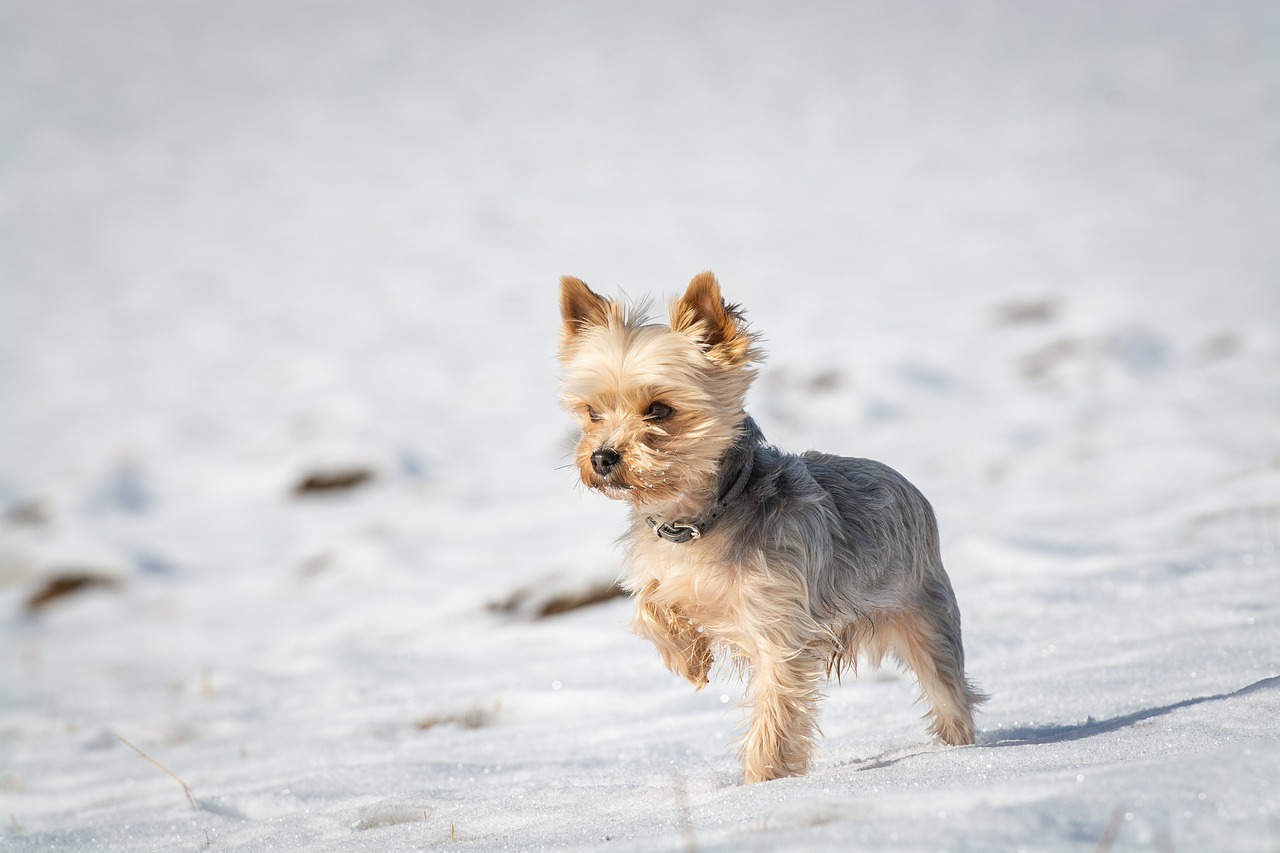
Grooming Needs
The Manchester Terrier is a breed that boasts a short, sleek coat, which means that their grooming requirements are relatively minimal compared to other breeds. This makes them an attractive option for potential owners who may not have the time or resources for extensive grooming routines. However, it is essential to maintain their coat and overall health through regular grooming practices. A simple routine can keep your Manchester looking sharp and feeling great.
Regular brushing is vital to remove loose hair and dirt from their coat. Using a soft-bristle brush is highly recommended, as it effectively glides over their skin without causing irritation. Not only does brushing help maintain their appearance, but it also promotes healthy skin by stimulating natural oils. Aim to brush your Manchester Terrier at least once a week, or more frequently during shedding seasons, to keep their coat in top condition.
Bathing is another important aspect of grooming, but it should be done with care. Generally, Manchester Terriers only need a bath every few months or when they become particularly dirty. Overbathing can strip their coat of natural oils, leading to dryness and irritation. To ensure you are bathing them properly, consider the following tips:
- Use a gentle, dog-specific shampoo to avoid skin irritation.
- Thoroughly rinse all shampoo from their coat to prevent residue buildup.
- Dry your dog completely after bathing, especially in colder weather, to prevent chills.
In addition to coat care, routine dental care and nail trimming are essential for the overall health of your Manchester Terrier. Regularly brushing their teeth can help prevent dental diseases, which are common in dogs. Aim to brush their teeth at least two to three times a week. For nail trimming, check their nails monthly; if you can hear them clicking on the floor, it’s time for a trim.
In summary, while the Manchester Terrier has low grooming needs, establishing a routine that includes brushing, occasional bathing, and dental and nail care will ensure your dog remains healthy and happy. Remember, grooming is not just about appearance; it’s also a wonderful opportunity to bond with your furry friend!
Here are some common questions regarding the grooming needs of Manchester Terriers:
- How often should I brush my Manchester Terrier? It's recommended to brush them at least once a week, or more during shedding seasons.
- Can I use human shampoo on my dog? No, it's best to use a dog-specific shampoo to prevent skin irritation.
- How can I tell if my dog needs a bath? If they start to smell or their coat looks dirty, it's time for a bath.
- Is professional grooming necessary? Regular at-home grooming is usually sufficient, but professional grooming can help if you're unsure or if your dog needs a special cut.
Brushing Techniques
When it comes to grooming your Manchester Terrier, mastering the right is essential for maintaining their sleek appearance and overall health. Their short coat may seem low-maintenance, but regular brushing is crucial for removing loose hair and dirt, promoting a healthy skin environment, and strengthening the bond between you and your furry friend. A soft-bristle brush is your best ally in this endeavor. It gently removes debris without irritating their skin, making the process enjoyable for both of you.
To start, find a comfortable spot where your dog feels relaxed. This could be a cozy corner of your living room or even outside on a sunny day. Begin by brushing in the direction of hair growth, using gentle strokes to avoid causing any discomfort. Pay special attention to areas where dirt tends to accumulate, such as around the ears and paws, as these spots can harbor hidden grime.
In addition to regular brushing, consider incorporating a de-shedding tool into your routine, especially during shedding season. This tool can help you manage the amount of loose hair and keep your home cleaner. Remember, grooming isn’t just about looks; it’s also a fantastic way to check for any unusual lumps, bumps, or skin irritations that may need veterinary attention. So, while you’re brushing, take the time to give your Manchester Terrier a thorough inspection.
To make the brushing experience even more enjoyable, you might want to reward your dog with treats or praise during and after the grooming session. This not only helps them associate grooming with positive experiences but also creates a stronger bond between you two. Regular grooming sessions can turn into a fun ritual that both you and your Manchester Terrier look forward to!
- How often should I brush my Manchester Terrier? It's recommended to brush them at least once a week, but more frequent brushing may be necessary during shedding seasons.
- Can I use human brushes on my dog? While some human brushes might work, it's best to use brushes specifically designed for dogs to avoid skin irritation.
- What should I do if my dog doesn't like being brushed? Start slowly and associate brushing with positive experiences, like treats or playtime. Gradually increase the brushing duration as they become more comfortable.
Bathing Frequency
This article explores the unique traits of the Manchester Terrier, including its physical appearance, temperament, exercise needs, and grooming requirements, providing a comprehensive overview for potential owners and enthusiasts.
The Manchester Terrier boasts a sleek, athletic build with distinct features. Their short coat, elegant lines, and expressive eyes contribute to their striking appearance, making them easily recognizable among dog breeds.
Known for their lively and intelligent nature, Manchester Terriers are affectionate companions. Their playful demeanor and loyalty make them excellent family pets, while their alertness also makes them effective watchdogs.
Proper socialization is crucial for Manchester Terriers to develop well-rounded personalities. Early exposure to various environments, people, and other animals helps prevent behavioral issues and fosters confidence in these spirited dogs.
Manchester Terriers can be great with children, enjoying their playful energy. However, supervision is essential to ensure safe interactions and prevent any accidental rough play, especially with younger kids.
While generally friendly, Manchester Terriers may display a prey drive due to their terrier background. Careful introductions and monitoring are necessary when integrating them into homes with smaller pets.
Training a Manchester Terrier can be both rewarding and challenging. Their intelligence requires consistent, positive reinforcement methods to keep them engaged and responsive, ensuring they become well-behaved companions.
These energetic dogs thrive on regular physical activity. Daily walks, playtime, and mental stimulation are essential to keep them healthy and prevent boredom-related behaviors, making exercise a priority for owners.
Engaging Manchester Terriers in various activities, such as agility training or fetch, can help satisfy their energy levels. These activities also strengthen the bond between the dog and its owner, enhancing overall happiness.
When not adequately exercised, Manchester Terriers may exhibit destructive behaviors or excessive barking. Recognizing these signs early allows owners to adjust their routines and meet their dog's needs effectively.
Manchester Terriers have minimal grooming requirements, thanks to their short coat. Regular brushing and occasional baths help maintain their appearance, while routine dental care and nail trimming are also important for overall health.
Using a soft-bristle brush can effectively remove loose hair and dirt from a Manchester Terrier's coat. Regular brushing not only keeps them looking their best but also promotes skin health and bonding time.
Bathing your Manchester Terrier should be done with care and consideration. Typically, a bath is needed every few months, or whenever they become particularly dirty. Overbathing can strip the natural oils from their coat, leading to dryness and irritation. Therefore, it's crucial to find a balance that keeps their coat clean without compromising its health. Signs that your dog may need a bath include:
- Visible dirt or odor
- Excessive shedding
- Skin irritation or itchiness
In general, aim for a bathing schedule that aligns with your dog's lifestyle and activities. If your Manchester Terrier enjoys outdoor adventures or has a tendency to roll in mud, you might find yourself bathing them more often. Conversely, if they are primarily indoor dogs, a bath every few months should suffice. Remember, the key is moderation—too frequent baths can lead to more harm than good!
Like all breeds, Manchester Terriers may be prone to specific health issues. Regular veterinary check-ups and awareness of potential conditions can help ensure a long, healthy life for these energetic dogs.
Some health concerns for Manchester Terriers include hip dysplasia and patellar luxation. Understanding these issues can help owners take preventive measures and monitor their dog's health effectively.
Routine veterinary visits, vaccinations, and a balanced diet play crucial roles in maintaining a Manchester Terrier's health. Preventive care helps catch potential issues early, promoting a longer, happier life for the dog.
1. How often should I bathe my Manchester Terrier?
Generally, every few months is sufficient, but adjust based on their activity level and how dirty they get.
2. Do Manchester Terriers shed a lot?
They have a short coat and shed minimally, but regular brushing helps manage loose hair.
3. Are Manchester Terriers good with children?
Yes, they can be great companions for children, but supervision is key to ensure safe play.
4. What is the lifespan of a Manchester Terrier?
With proper care, they typically live between 12 to 14 years.
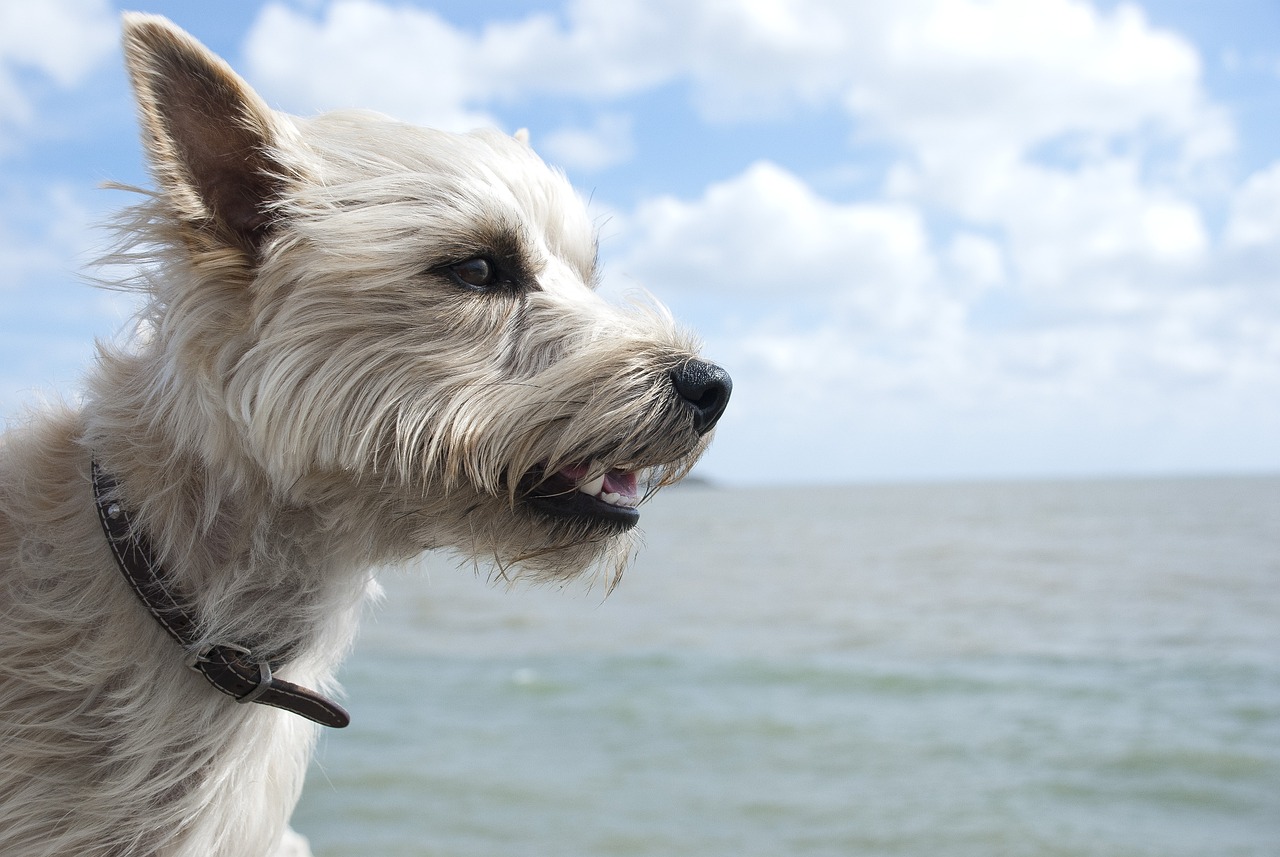
Health Considerations
Like all breeds, Manchester Terriers may be prone to specific health issues that potential owners should be aware of. Understanding these conditions not only helps in early detection but also in providing the best care possible. Regular veterinary check-ups are essential, as they allow for timely interventions and monitoring of your dog's health. Some common health concerns for Manchester Terriers include:
- Hip Dysplasia: A genetic condition where the hip joint doesn't fit into the hip socket properly, leading to arthritis and pain.
- Patellar Luxation: This occurs when the kneecap dislocates, which can cause lameness or difficulty walking.
- Progressive Retinal Atrophy (PRA): A degenerative eye condition that can lead to blindness.
It's crucial for owners to monitor their Manchester Terriers for any signs of discomfort or unusual behavior. Regular veterinary visits can help catch potential issues early, allowing for better management and care. Additionally, being proactive about your dog's health can significantly enhance their quality of life. Here are some preventive care tips:
| Preventive Care Tips | Description |
|---|---|
| Routine Veterinary Visits | Regular check-ups ensure any health issues are detected early. |
| Vaccinations | Keeping up with vaccinations protects against various diseases. |
| Balanced Diet | A nutritious diet supports overall health and can prevent obesity. |
Incorporating these preventive measures into your dog's routine can help ensure a long, healthy life for your Manchester Terrier. Remember, just like a well-tuned engine, your dog needs regular maintenance to run smoothly. By paying attention to their health, you can enjoy many happy years together.
Q: How often should I take my Manchester Terrier to the vet?
A: It's recommended to take them for a check-up at least once a year, but more frequent visits may be necessary as they age or if any health issues arise.
Q: What are the signs of hip dysplasia in dogs?
A: Look for signs such as difficulty getting up, reluctance to jump or climb stairs, and noticeable limping or favoring a leg.
Q: Can I prevent patellar luxation?
A: While you can't completely prevent it due to genetic factors, maintaining a healthy weight and providing regular exercise can help mitigate the risk.
Common Health Issues
Like all breeds, Manchester Terriers are not immune to certain health challenges that can affect their overall well-being. Being aware of these potential issues is crucial for any responsible pet owner. One of the most common problems is hip dysplasia, a genetic condition where the hip joint doesn't fit perfectly into the hip socket. This can lead to pain and mobility issues, making it essential for owners to monitor their dogs for any signs of discomfort.
Another health concern is patellar luxation, which occurs when the kneecap dislocates from its normal position. This condition can be particularly frustrating as it may cause limping or difficulty in walking. Regular veterinary check-ups are vital for early detection and management of these conditions.
Moreover, Manchester Terriers can be susceptible to eye problems, such as cataracts or progressive retinal atrophy, which can lead to vision loss. It’s crucial for owners to observe any changes in their dog’s vision and consult a vet if they notice anything unusual.
To help you better understand these issues, here’s a quick overview:
| Health Issue | Description | Symptoms |
|---|---|---|
| Hip Dysplasia | A genetic condition affecting the hip joint. | Pain, limping, difficulty in movement. |
| Patellar Luxation | Dislocation of the kneecap. | Limping, skipping, reluctance to walk. |
| Eye Problems | Conditions such as cataracts or retinal issues. | Vision loss, squinting, watery eyes. |
By understanding these common health issues, you can take proactive steps to ensure your Manchester Terrier remains healthy and happy. Regular veterinary visits, a balanced diet, and being attentive to any changes in behavior or physical condition can make a significant difference in your dog's quality of life.
- What is the average lifespan of a Manchester Terrier?
The average lifespan is around 14 to 16 years, but with proper care, they can live even longer. - Do Manchester Terriers shed a lot?
They have a short coat and shed minimally, making them relatively low-maintenance in terms of grooming. - Are Manchester Terriers good for first-time dog owners?
Yes, with proper training and socialization, they can be great companions for first-time owners. - How much exercise do they need?
Manchester Terriers require at least 30 to 60 minutes of exercise daily to stay healthy and happy.
Preventive Care
When it comes to ensuring your Manchester Terrier lives a long and healthy life, preventive care is absolutely crucial. Regular veterinary visits are the cornerstone of maintaining your dog's health. These check-ups allow your vet to catch any potential issues before they escalate into serious problems. Just like we go for annual physicals, your furry friend needs their routine health screenings. Think of it as a way to keep their tail wagging and their spirit high!
In addition to routine check-ups, vaccinations play a vital role in your dog's health regimen. Keeping their vaccinations up to date protects them from various diseases that can be harmful or even fatal. Common vaccinations for dogs include those for rabies, distemper, and parvovirus. Your vet can provide a tailored vaccination schedule based on your dog's age, health, and lifestyle. Remember, a well-vaccinated dog is a happy dog!
A balanced diet is another key component of preventive care. Just like humans, dogs thrive on a nutritious diet that meets their specific needs. High-quality dog food formulated for their size and age can help prevent obesity and other health issues. Additionally, be mindful of treats; they should complement your dog’s diet rather than replace it. If you're ever unsure about what to feed your Manchester Terrier, consult your veterinarian for recommendations.
To give you a clearer picture of what preventive care includes, here’s a quick overview:
| Preventive Care Aspect | Importance |
|---|---|
| Regular Veterinary Check-ups | Early detection of health issues |
| Vaccinations | Protection against diseases |
| Balanced Diet | Prevention of obesity and nutritional deficiencies |
| Dental Care | Prevention of dental diseases |
| Exercise | Maintenance of physical and mental health |
Dental care is often overlooked but is incredibly important for your Manchester Terrier. Regular brushing can help prevent dental diseases, which are common in dogs. If brushing seems daunting, consider dental chews or professional cleanings as alternatives. A healthy mouth contributes to a healthy body, so don’t neglect those pearly whites!
Lastly, don’t forget about exercise! Regular physical activity is not just about keeping your dog fit; it also plays a significant role in their mental health. A well-exercised dog is less likely to engage in destructive behaviors caused by boredom or pent-up energy. Aim for daily walks, play sessions, or even agility training to keep your Manchester Terrier both physically and mentally stimulated.
In summary, preventive care encompasses a range of practices, from veterinary visits and vaccinations to diet and exercise. By prioritizing these aspects, you can help your Manchester Terrier lead a longer, healthier, and happier life. Remember, a little effort goes a long way in ensuring your furry companion stays by your side for years to come!
- How often should I take my Manchester Terrier to the vet? It's generally recommended to visit the vet at least once a year for routine check-ups.
- What vaccinations does my Manchester Terrier need? Common vaccinations include rabies, distemper, and parvovirus, but consult your vet for a personalized schedule.
- How can I maintain my dog's dental health? Regular brushing, dental chews, and professional cleanings are effective methods to ensure good dental hygiene.
- What type of diet is best for a Manchester Terrier? A high-quality, balanced diet tailored to their size and age is ideal. Always consult your vet for specific recommendations.
Frequently Asked Questions
- What is the average lifespan of a Manchester Terrier?
The average lifespan of a Manchester Terrier is typically around 12 to 14 years. With proper care, a balanced diet, and regular veterinary check-ups, these energetic dogs can live a long and healthy life.
- Do Manchester Terriers shed a lot?
Manchester Terriers have a short coat that sheds minimally. Regular brushing can help manage any loose hair and keep their coat looking sleek and shiny. It's a great way to bond with your dog while maintaining their appearance!
- Are Manchester Terriers good with children?
Yes, Manchester Terriers can be great companions for children! They are playful and affectionate, but supervision is essential during interactions to ensure safe play, especially with younger kids. Teaching kids how to interact gently with the dog is also important.
- How much exercise do Manchester Terriers need?
Manchester Terriers are energetic dogs that require at least 30 to 60 minutes of exercise daily. This can include walks, playtime, and mental stimulation to keep them happy and healthy. Engaging them in activities like fetch or agility training is a fantastic way to burn off energy!
- What are common health issues for Manchester Terriers?
Some common health concerns for Manchester Terriers include hip dysplasia and patellar luxation. Regular veterinary check-ups and being aware of these potential issues can help you provide the best care for your furry friend.
- How often should I groom my Manchester Terrier?
Grooming a Manchester Terrier is relatively low-maintenance. Regular brushing, typically once a week, is recommended to remove loose hair and dirt. Bathing should be done as needed, usually every few months, to maintain their coat’s health without stripping natural oils.
- Are Manchester Terriers good watchdogs?
Absolutely! Manchester Terriers are known for their alertness and keen instincts, making them effective watchdogs. They will alert you to any unusual activity, providing peace of mind while being loyal companions.
- Can Manchester Terriers live in apartments?
Yes, Manchester Terriers can adapt well to apartment living as long as they receive adequate exercise. Daily walks and playtime are essential to keep them happy and prevent boredom, which can lead to destructive behaviors.


